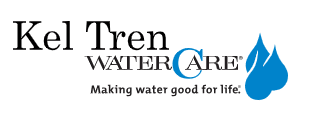Well, let’s talk about wells. I mean, it’s pretty relevant since about 12% of New Jersey Residents are using water from private wells, with the largest portion of that percentage falling in Mercer County. Where does well water come from? That’s easy (and honestly pretty boring). Simply, it’s old, stale rainfall. When it rains, the plants absorb most of the water, but what is left seeps between pores in rock until it reaches dense bedrock and can’t travel any further. Wells are drilled to collect that water that’s sitting there in pockets and caverns. Real interesting stuff right? Let’s get to good stuff.
Why Well Water Needs Treatment
“So why do I need to worry about my well water?” I know that’s probably what you’re thinking since you’re still reading this. Well, it is very likely that your well is pulling up contaminated ground water. Much of New Jersey and Bucks County seem to be hit by “a perfect storm” of terrifying water contaminants. These locations brag about having the best of both worlds: the proximity to Philadelphia, Trenton, Jersey City, and New York City with the beautiful landscapes of the rural Northeast. What they don’t brag about: landfills, failed septic tanks, underground fuel tanks, fertilizers and pesticides, and runoff from urban areas. A good rule of thumb? If your local public water supply is concerned about anything, you should be too.
The current largest concern seems to be perfluorooctaanesulfonic acid (or PFOS for short). PFOS is a known carcinogenic and may have toxic effects on the immune, liver, and endocrine systems. Since the 1950s, these chemicals were used commercially water, oil and stain repellants in carpets, clothing, paints, polishes, non-stick pans, waxes, and much more. Now, however, PFOS have ended up in water supplies and pose a threat, especially to those in central to south New Jersey.
Our area prides itself in being home to many local farms, and the rural landscapes are interspersed in the suburban life. Though beautiful, runoff from these rural areas can be hazardous to your well water. Infectious microorganisms, such as bacteria, viruses, and protozoa, as well as high levels of nitrate come from animal waste and chemical fertilizers. Like the rain water, these seep through the ground and into the water you bring into your home. In addition, volatile organic compounds (VOCs) come from household septic tanks and contaminate drinking water.
Finally, high levels of lead have been detected by many public systems in New Jersey, including Trenton Water Works, Bordentown Water Department, and Morristown. High levels of lead are known to affect children’s behavioral and intelligence development, as well as cause many health issues for adults. If it affects the public system that covers your area, it most likely also affects your private well system.
Water Treatment Options for Well Water
Trenton is beginning to take measures to remove PFOS in the public supply, and other public health departments are taking responsibility for safe water, but because wells are privately owned, residents must take cautionary measures for their own water. The CDC recommends a couple of things to help make your water safe. Filtration systems act as a physical barrier and can remove the impurities from the water. Filtration is a broad term. Carbon filtration can remove PFOS and VOCs while improving taste and odor problems. Reverse Osmosis systems can remove virtually everything, including lead Water softeners remove hardness in the water by removing calcium and manganese. Disinfection, such as chlorine and UV light kills microorganisms.
Cost of Treating Well Water
Depending on the problems that you are trying to solve, costs can vary widely, but may not be as crazy as you anticipate. Simple filtration, such as a simple drinking water system, can be as low as just a few hundred dollars. For whole house water treatment, you’re looking at a few thousand dollars, which seems like a small price to pay for healthy, safe water. Price is going to depend on the size of the system, what is being treated, and how often it will need servicing. The bottom line is that you should be sure to have your water evaluated by a water professional, not just an online survey. The most reliable advice and quotes will come from an in-person, at-home visit from a professional.
